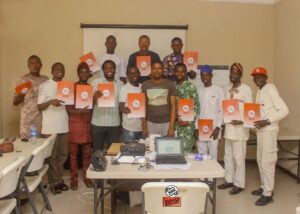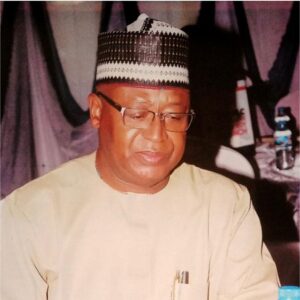Niger Coup should be addressed with effective caution!
The last coup in Africa occurred in Niger on July 28, 2023. However, it’s important to note that coups and coup attempts have been a recurring issue in Africa. In recent years, there have been multiple coups and coup attempts in different countries across the continent. For example, there were two coups in Burkina Faso in 2022, and there have been coup attempts in Guinea Bissau, The Gambia, and Sao Tome and Principe
The overall number of coup attempts in Africa has remained consistent at an average of around four per year between 1960 and 2000
There are several causes of coups in Africa, some of the culprits are as follows.
Political instability; African countries have experienced political instability since gaining independence from colonial powers. The instability is often caused by weak political institutions, corruption, and a lack of transparent democratic processes.
Economic factors: Poverty and poor economic performance have been identified as common conditions that contribute to the occurrence of coups in African countries
Military grievances: Military personnel may stage coups due to grievances such as poor pay, lack of promotions, and poor working conditions. Also Overstaying in power by African leaders who overstay in power and lose their focus can cause government institutions to weaken, leading to coups. Ethnic antagonism: Ethnic tensions and conflicts can also contribute to coups in Africa. Cultural pluralism. The diversity of cultures in African countries can lead to conflicts and coups. While there are many factors that contribute to coups in Africa, poverty and poor economic performance have been identified as the most common causes. It’s important to address these issues to prevent future coups and promote stability in African countries. Poverty and poor economic performance have been identified as common conditions that contribute to the occurrence of coups in African countries
There are some variance to this action, but there are some recurring themes that have been identified. Here are some factors for emphasis.
Poor governance: Many coups in Africa have been driven by dissatisfaction with corrupt and ineffective governments. Poor governance, including lack of transparency, accountability, and respect for human rights, can create a fertile ground for coups
Economic challenges: Poverty, inequality, and economic instability can also contribute to the likelihood of coups. Countries with high levels of poverty and economic mismanagement are more susceptible to political instability and military takeovers.
Regional instability: Regional conflicts and instability can spill over into neighboring countries and increase the risk of coups. Armed conflicts, ethnic tensions, and the presence of extremist groups can create a volatile environment that can lead to political upheaval.
Historical precedent: Past successful coups can create a cycle of instability, where the occurrence of one coup increases the likelihood of future coups. This can be attributed to a normalization of coups as a means of political change.
Foreign influence: Foreign interference and strategic competition can also contribute to the occurrence of coups. External actors may support or manipulate political factions within a country, exacerbating existing tensions and increasing the likelihood of a coup.
It is important to note that these factors are not exhaustive, and each coup situation is unique. Addressing these underlying causes and promoting good governance, economic development, and regional stability are crucial in preventing coups in Africa.
Preventing coups in Africa requires a comprehensive approach that addresses the underlying causes of political instability. Here are some measures that can be taken:
Promote good governance: Strengthening democratic institutions, promoting transparency, accountability, and respect for human rights are crucial in preventing coups. Governments should prioritize democracy and implement consistent strategies and programs to support democratic processes
Invest in economic development: Addressing economic challenges is essential in preventing coups. Governments should focus on poverty reduction, job creation, and equitable economic growth. Improving economic conditions can reduce the likelihood of political instability
Build the rule of law: Establishing and enforcing the rule of law is vital in deterring potential coup makers. A strong legal framework, independent judiciary, and effective law enforcement can contribute to stability and discourage military interventions
Address regional conflicts: Regional instability can contribute to coups. Efforts should be made to resolve conflicts, promote peacebuilding, and strengthen regional cooperation. Addressing regional tensions can reduce the risk of political upheaval
Engage with international partners: Collaboration with international partners is crucial in preventing coups. Countries should work together to promote democratic values, support good governance, and provide assistance in areas such as economic development and security sector reform
It is important to note that these measures should be tailored to the specific context of each country and implemented in a sustainable and inclusive manner. Long-term commitment and cooperation are key to preventing coups in Africa






